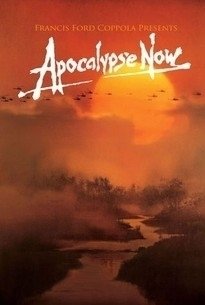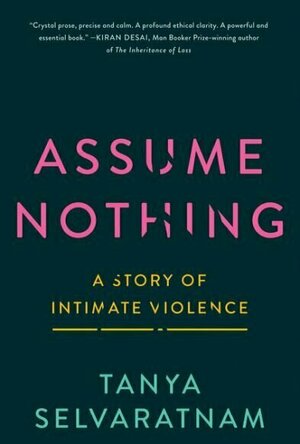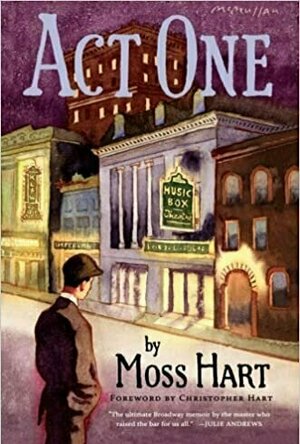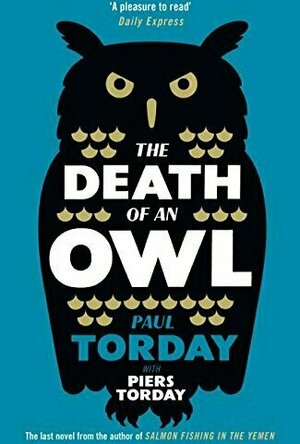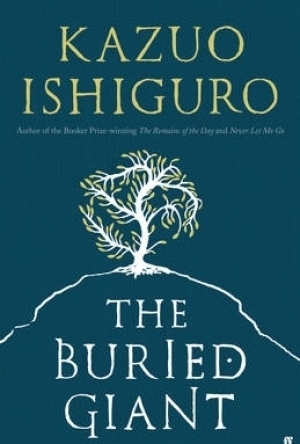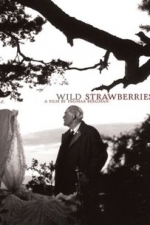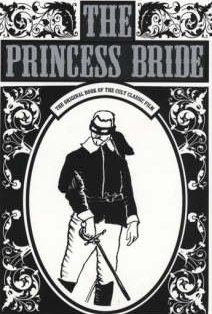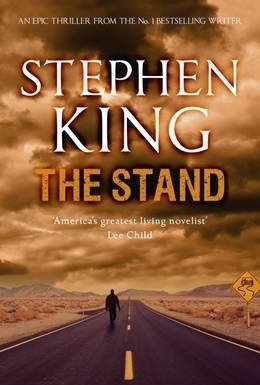Search
Search results
Aaron Eckhart recommended Apocalypse Now (1979) in Movies (curated)
Morgan Sheppard (936 KP) created a post
Apr 4, 2020
Erika (17789 KP) rated Assume Nothing: A Story of Intimate Violence in Books
Mar 20, 2021
Had I known more about the author, I probably wouldn't have read this book. I didn't like the woman herself, she's part of a very large group of women that have selective memory regarding stories, like her own.
Her story of survival was well-written, but I still don't like her.
Her story of survival was well-written, but I still don't like her.
Terrence McNally recommended Act One in Books (curated)
The Chocolate Lady (94 KP) rated The Death of an Owl in Books
Oct 7, 2020
After author Paul Torday died, his son Piers found his father's last manuscript, which was supposed to become his ninth novel. Piers decided to complete this unfinished work to honor his father's memory. Read my review of this unintentional collaborative effort here.
https://tcl-bookreviews.com/2017/04/02/truth-and-politics/
https://tcl-bookreviews.com/2017/04/02/truth-and-politics/
Entertainment Editor (1988 KP) created a video about Thank You for Your Service (2017) in Movies
Nov 6, 2017
EmersonRose (320 KP) rated The Buried Giant in Books
Nov 20, 2019
The winner of the 2017 Nobel Prize for Literature, Kazuo Ishiguro was born in 1954 in Nagasaki Japan, but he and his family moved in England in 1960. These two places and cultures have profoundly affected Ishiguro’s writing throughout his career. His first book, A Pale View of Hills, was published in 1982 and won the Winifred Holtby Memorial Prize, and he has since written seven novels and numerous short stories. His most recent book was The Buried Giant in 2015.
It is hard to pinpoint a genre to which Kazuo Ishiguro sticks to as he writes in fantasy, science-fiction, and historical. It can be said that all of his novels have the feeling of being set in the past even when the time period is not explicitly described, but the core theme that connects all of his writing together is memory. In each of his stories, Ishiguro examines how people use memory, how memory affects people, and who we are with or without memory.
Ishiguro explores many different ways in which memory affects people throughout his books ranging from memory loss to dream like memory distortion. In his books Never Let Me Go and The Remains of the Day the stories are told by narrators looking back at crucial moments in their lives. In letting us know that they are remembering their own pasts they admit that they are saying their perspective and their memory might be lacking. In this way letting the reader know that they are unreliable narrators. In The Remains of the Day the narrator, the butler Mr. Stevens decides to go on a journey to visit an old friend and along the way shows his unreliability in several ways. First in acknowledging how memory can change and fade over time.
“It occurs to me that elsewhere in attempting to gather such recollections, I may well have asserted that this memory derived from the minute immediately after Miss Kenton receiving news of her aunt’s death….But now, having thought further, I believed I may have been a little confused about this matter; that in fact, this fragment of memory derives from events that took place on an evening at least a few months after the death of Miss Kenton’s aunt” (212).
In this way, Steven’s is acknowledging human error which both shows his unreliability but gives a level of trust in the acknowledgment that he is doing his best to be truthful. This, however, is challenged because Steven’s informs us that he lies, at the very least through omission, to other characters. A clear case of this is when he allows himself to be considered a gentleman rather than a butler on several occasions throughout his journey. This becomes complex because he is allowing the reader in on the truth, but the very fact of admitting that he can lie further reveals his unreliability.
In Ishiguro’s most recent book, The Buried Giant, he looks at memory in a way that is similar to these previous stories but takes a new approach. His central two characters in this book, Axle, and Beatrice are an elderly couple setting out on a journey with almost no memory of who they are. Throughout the story, they remember or think they remember pieces of their pasts and in the process making them question who they really are. This uncertainty in themselves creates interesting questions of whether or not they want to remember their lives if they are happier not knowing, and if they can continue to live their lives the way they are with their new/old information?
“Yet are you so certain, good mistress, you wish to be free of this mist? Is it not better some things remain hidden from our minds?”
“It may be for some, father, but not for us. Axl and I wish to have again the happy moments we shared together. To be robbed of them is as if a thief came in the night and took what’s most precious from us.”
“Yet the mist covers all memories, the bad as well as the good. Isn’t that so, mistress?”
“We’ll have the bad ones come back too, even if they make us weep or shake with anger. For isn’t it the life we’ve shared?” (172).
In some of Ishiguro’s other work, he chooses to explore memory through the lens of a dreamlike state or surreal views, such as his short story A Village After Dark and the novel The Unconsoled. In these stories, the narrator enters into a new place and finds that they have slowly emerging memories connected to the places and people they meet. The Unconsoled creates a strange dynamic where the lead character Mr. Ryder has never been to this town before but finds himself confronted by childhood acquaintances as well as meeting a woman and child who treat him like husband and father and memories that support this begin to come back to him. In an interview Ishiguro did on the book in 1995, he summarizes the story as “an anxiety dream” as Mr. Ryder continually finds himself confronted with the expectation of him without being told anything in advance. At the beginning of the story, Mr. Ryder arrives at his hotel knowing that he will be playing at a concert in few days and is told he has a busy schedule up till then. At this point in the story, the anxiety dream state sets in Mr. Ryder continuously finds himself late to engagements, leaving people behind by accident and being dragged around town. As the story progresses, Mr. Ryder begins to have memories of a past associated with some of the people he has met, despite being introduced as completely new to the town. Some of these can be explained by the fact that as a reader we are dropped into a story after it has started but the memories of these instances only come back to Ryder after he has been told things have happened. This means that throughout the story it impossible to know whether or not the narrator has forgotten and is remembering or if the town is merely a dream limbo and nothing he is being told is real, to begin with.
Whether taking the more fantastical approach or the those that fall closer to realism, Ishiguro’s play with memory remains relatable to the readers. Each journey Ishiguro writes is designed to tackle something different about memory. The stories ask us questions about what memory and how much it affects who we are and our ability to live in our world. From whether or not we can know who we are without memory to how trustworthy our memories actually are. These questions, however fantastically asked, offer something to the reader that they can relate to. For memory is almost a fanatical force on its own that we all share and try to understand. It can play with us when we take it for granted and offer vulnerability and connection when shared with others. Ishiguro delves into these ideas in each of his works, ever exploring its uncertainty and power.
It is hard to pinpoint a genre to which Kazuo Ishiguro sticks to as he writes in fantasy, science-fiction, and historical. It can be said that all of his novels have the feeling of being set in the past even when the time period is not explicitly described, but the core theme that connects all of his writing together is memory. In each of his stories, Ishiguro examines how people use memory, how memory affects people, and who we are with or without memory.
Ishiguro explores many different ways in which memory affects people throughout his books ranging from memory loss to dream like memory distortion. In his books Never Let Me Go and The Remains of the Day the stories are told by narrators looking back at crucial moments in their lives. In letting us know that they are remembering their own pasts they admit that they are saying their perspective and their memory might be lacking. In this way letting the reader know that they are unreliable narrators. In The Remains of the Day the narrator, the butler Mr. Stevens decides to go on a journey to visit an old friend and along the way shows his unreliability in several ways. First in acknowledging how memory can change and fade over time.
“It occurs to me that elsewhere in attempting to gather such recollections, I may well have asserted that this memory derived from the minute immediately after Miss Kenton receiving news of her aunt’s death….But now, having thought further, I believed I may have been a little confused about this matter; that in fact, this fragment of memory derives from events that took place on an evening at least a few months after the death of Miss Kenton’s aunt” (212).
In this way, Steven’s is acknowledging human error which both shows his unreliability but gives a level of trust in the acknowledgment that he is doing his best to be truthful. This, however, is challenged because Steven’s informs us that he lies, at the very least through omission, to other characters. A clear case of this is when he allows himself to be considered a gentleman rather than a butler on several occasions throughout his journey. This becomes complex because he is allowing the reader in on the truth, but the very fact of admitting that he can lie further reveals his unreliability.
In Ishiguro’s most recent book, The Buried Giant, he looks at memory in a way that is similar to these previous stories but takes a new approach. His central two characters in this book, Axle, and Beatrice are an elderly couple setting out on a journey with almost no memory of who they are. Throughout the story, they remember or think they remember pieces of their pasts and in the process making them question who they really are. This uncertainty in themselves creates interesting questions of whether or not they want to remember their lives if they are happier not knowing, and if they can continue to live their lives the way they are with their new/old information?
“Yet are you so certain, good mistress, you wish to be free of this mist? Is it not better some things remain hidden from our minds?”
“It may be for some, father, but not for us. Axl and I wish to have again the happy moments we shared together. To be robbed of them is as if a thief came in the night and took what’s most precious from us.”
“Yet the mist covers all memories, the bad as well as the good. Isn’t that so, mistress?”
“We’ll have the bad ones come back too, even if they make us weep or shake with anger. For isn’t it the life we’ve shared?” (172).
In some of Ishiguro’s other work, he chooses to explore memory through the lens of a dreamlike state or surreal views, such as his short story A Village After Dark and the novel The Unconsoled. In these stories, the narrator enters into a new place and finds that they have slowly emerging memories connected to the places and people they meet. The Unconsoled creates a strange dynamic where the lead character Mr. Ryder has never been to this town before but finds himself confronted by childhood acquaintances as well as meeting a woman and child who treat him like husband and father and memories that support this begin to come back to him. In an interview Ishiguro did on the book in 1995, he summarizes the story as “an anxiety dream” as Mr. Ryder continually finds himself confronted with the expectation of him without being told anything in advance. At the beginning of the story, Mr. Ryder arrives at his hotel knowing that he will be playing at a concert in few days and is told he has a busy schedule up till then. At this point in the story, the anxiety dream state sets in Mr. Ryder continuously finds himself late to engagements, leaving people behind by accident and being dragged around town. As the story progresses, Mr. Ryder begins to have memories of a past associated with some of the people he has met, despite being introduced as completely new to the town. Some of these can be explained by the fact that as a reader we are dropped into a story after it has started but the memories of these instances only come back to Ryder after he has been told things have happened. This means that throughout the story it impossible to know whether or not the narrator has forgotten and is remembering or if the town is merely a dream limbo and nothing he is being told is real, to begin with.
Whether taking the more fantastical approach or the those that fall closer to realism, Ishiguro’s play with memory remains relatable to the readers. Each journey Ishiguro writes is designed to tackle something different about memory. The stories ask us questions about what memory and how much it affects who we are and our ability to live in our world. From whether or not we can know who we are without memory to how trustworthy our memories actually are. These questions, however fantastically asked, offer something to the reader that they can relate to. For memory is almost a fanatical force on its own that we all share and try to understand. It can play with us when we take it for granted and offer vulnerability and connection when shared with others. Ishiguro delves into these ideas in each of his works, ever exploring its uncertainty and power.
Alan Rudolph recommended Wild Strawberries (1957) in Movies (curated)
The Chocolate Lady (94 KP) rated The Princess Bride in Books
Oct 5, 2020
To honor the memory William Goldman, who passed away yesterday, I just updated my #bookreview of his most wonderful novel “The Princess Bride,” which is one of my all-time favorite books, and one which deserves far more than just 5/5 stars! https://tcl-bookreviews.com/2013/05/16/prepare-to-die-laughing/
Chris Hooker (419 KP) rated The Stand in Books
Dec 31, 2017
My first memory of this book is hearing adults talk about the Lincoln Tunnel scene, while in the Lincoln Tunnel. That is where my fear of tunnels began.
I read the book in college and loved it. By this time I was a post apocalyptic junkie and the good vs evil concept was awesome.
I read the book in college and loved it. By this time I was a post apocalyptic junkie and the good vs evil concept was awesome.
